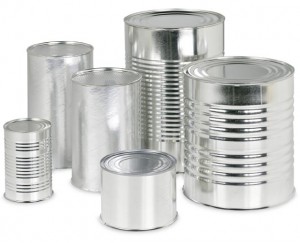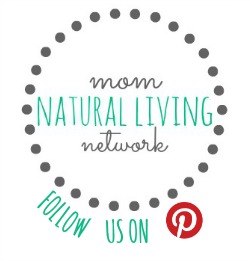It’s not new news that the tin cans used for canned food is lined with a resin containing bisphenol-A (BPA). The only new news is that every week there seems to be new research warning of BPA’s dangerous effects. Unfortunately, avoiding canned food altogether is just not feasible for every family. There are ways, however, to minimize your use of canned foods and the effect that BPA may have on you and your family.
1. Buy tomato based products in glass or TetraPaks. Acidity causes BPA leaching and tomatoes have a lot of it. You can get glass tomato paste and strained tomatoes from Bionaturae and crushed and diced tomatoes from San Marzano. Trader Joe’s carries an Italian Tomato Starter Sauce in a TetraPak and Pomi has both chopped and strained tomatoes, along with a marinara sauce in TetraPaks.
2. Buy Eden Foods canned goods. According to their website, “All 33 Eden Organic Beans including Chili, Rice & Beans, Refried, and Flavored, are cooked in steel cans coated with a baked on oleoresinous c-enamel that does not contain the endocrine disrupter chemical, bisphenol-A (BPA). Oleoresin is a non-toxic mixture of an oil and a resin extracted from various plants, such as pine or balsam fir. Theshttp://mommygoesgreen.com/wp-admin/post.php?post=1985&action=edite cans cost 14% more than the industry standard cans that do contain BPA. The Ball Corporation tells us that Eden is the only U.S. food maker to date to use these BPA free cans and we have been since April 1999.” Buy online.
3. Buy dried goods and cook them. Searching through my pantry, I find that many of my canned food purchases are beans – kidney, white, garbanzo or black. I can buy dried beans and cook them for my meals, it takes about an hour in a saucepan or just minutes with a pressure cooker.
4. Grow or pick your own. Spring is around the corner so start thinking about planting a fruit and/or veggie garden. I promise it’s not a lot of work – start small with a few easy to grow veggies this summer and keep adding year after year. It feels good to walk outside each day and pick the fruit of your labor (literally). What you don’t eat can be canned (in glass) for the winter. If you don’t want to grow your own, go to a farm and pick them. Last summer, we picked over 30 pounds of blueberries that lasted all winter and enough strawberries to make freezer jam for a year.
5. Buy soups and broths in TetraPaks. You can find a great variety of soups and broths in TetraPaks from brands like Pacific Foods, Imagine Foods, and Trader Joe’s.
6. Buy frozen. Frozen may not be quite as good as fresh, but it’s a better choice than canned. Frozen, organic fruits and veggies are not that more expensive than conventional choices and they are much healthier and contain less pesticides.
What other kinds of canned foods do you buy and can you find an alternative?
 Follow
Follow



http://www.informaworld.com/smpp/content~conten…
This is a website that says there is hydrochloric acid in PVC based organosol laquer. This is supposedly the chemical they use in the lids of the Bionaturae’s lid instead of BPA. Another website said there was chlorine in it…I guess pesticides may be better like the non organic Trader Joes in the box …scary!
BTW-Here is the reply when I asked bionaturae about the PVC in the lids
The lids of our jars do not contain BPA but they do contain a small
percentage of PVC in the round seal that you see on the inner surface of
the lid. This is used to secure the closure of the lid and at this time,
we have been unable to use a PVC-free compound, although we continue to
search for an alternative. We have found that all packaging materials
have a negative aspect, but we make our best efforts to determine which
is the less harmful.
In our unique manufacturing process, the tomatoes are pasteurized before
they are filled in the jar and without the lid. That means that when the
lid is adhered, the temperature has already cooled. It may be possible
for PVC to migrate into food by direct contact and at certain
temperatures, but we are far below these temperatures and there is no
contact of the tomatoes with the lid during our production cycle. We
have never found any level of PVC in the finished product. You must also
consider that the percentage of surface area of the lid compared to the
glass is very small and we therefore feel glass bottles are the purest
packaging. Other packaging options for tomatoes, mainly tin cans and
Tetrapak, are entirely lined with plastics that have direct contact with
a much higher percentage of the food.
Thank you for your interest in this very important issue.
Thank you for your interest in our products.
All the best,
bionaturae Customer Service Relations
info@bionaturae.com
Thank you JPJ for providing that information! I hadn’t even thought to ask about PVC in lids. If it’s not one thing, it’s another!
I was curious about tetra packs and frozen food bags, even the zip loc bags so many people put their fresh made or grown food in. Don’t those contain BPA and other toxic stuff?
I’m very slowly-probably over several years-trying to switch my storage containers over to glass and fabric. I just bought my first batch of nylon snack bags through a great deal at mamapedia. But overall the process is expensive compared to the cheap plastic stuff. I’m planning to hit Goodwill to see if I can pick up some glass containers.
Any advice for making the switch economically?